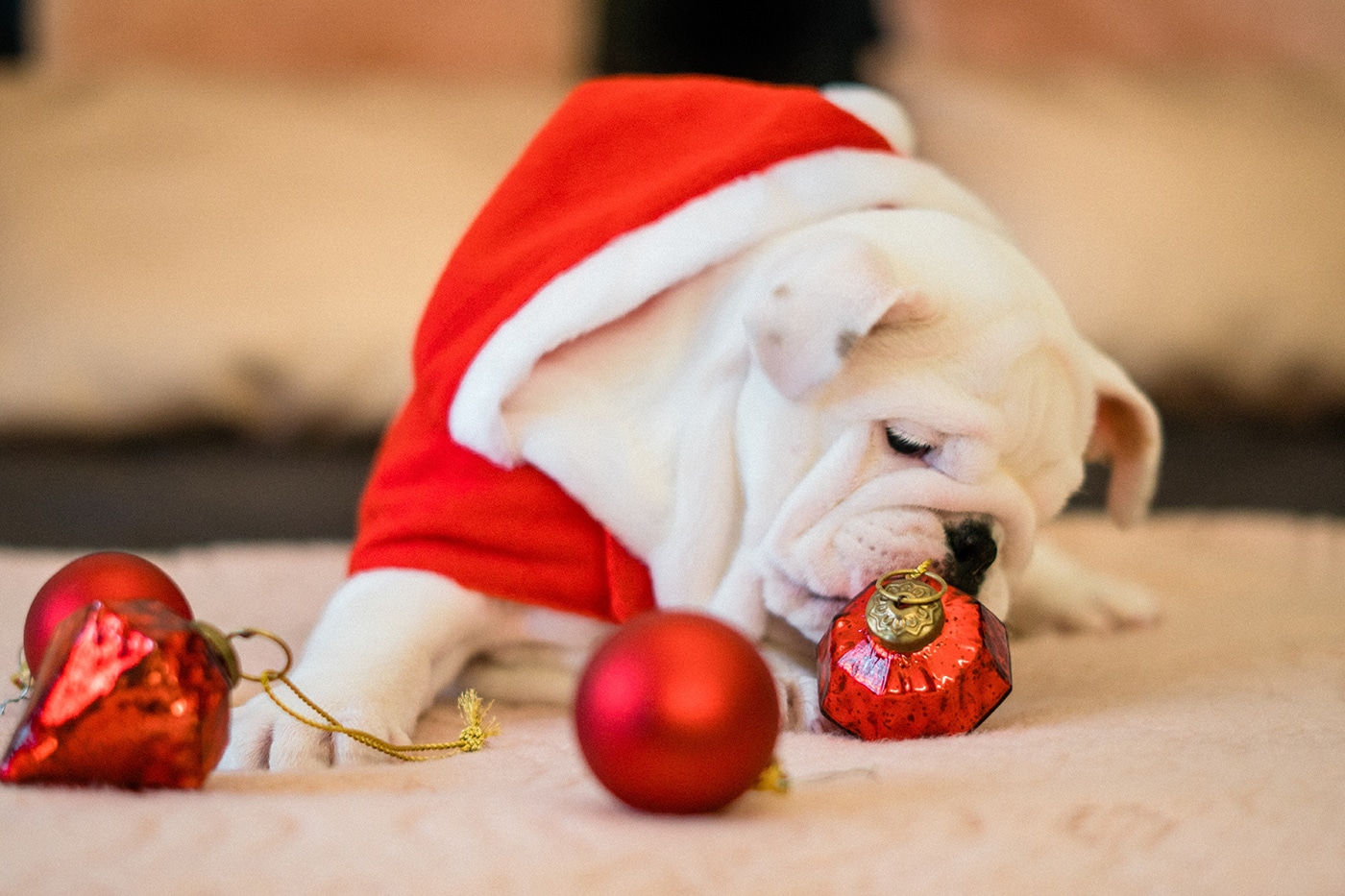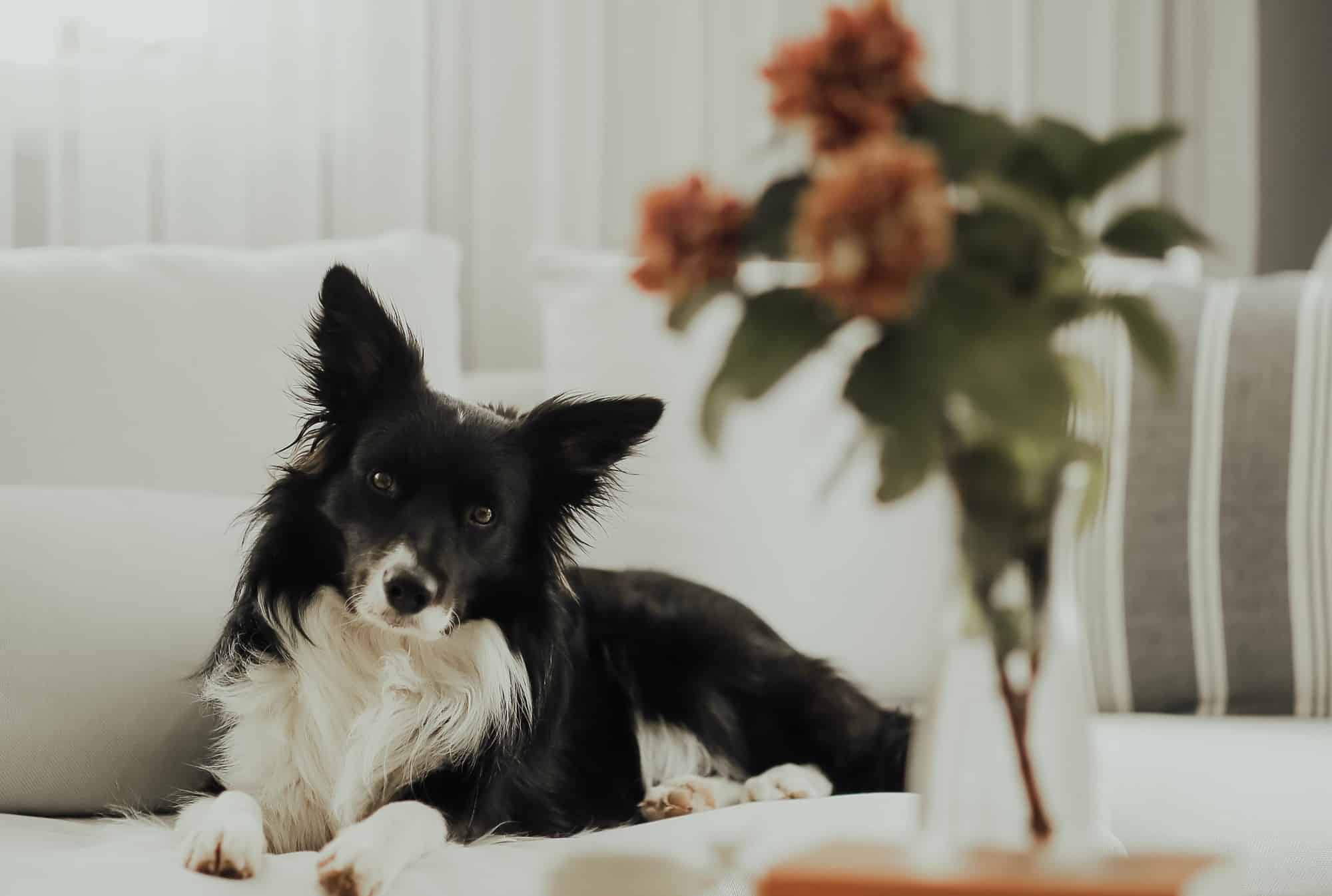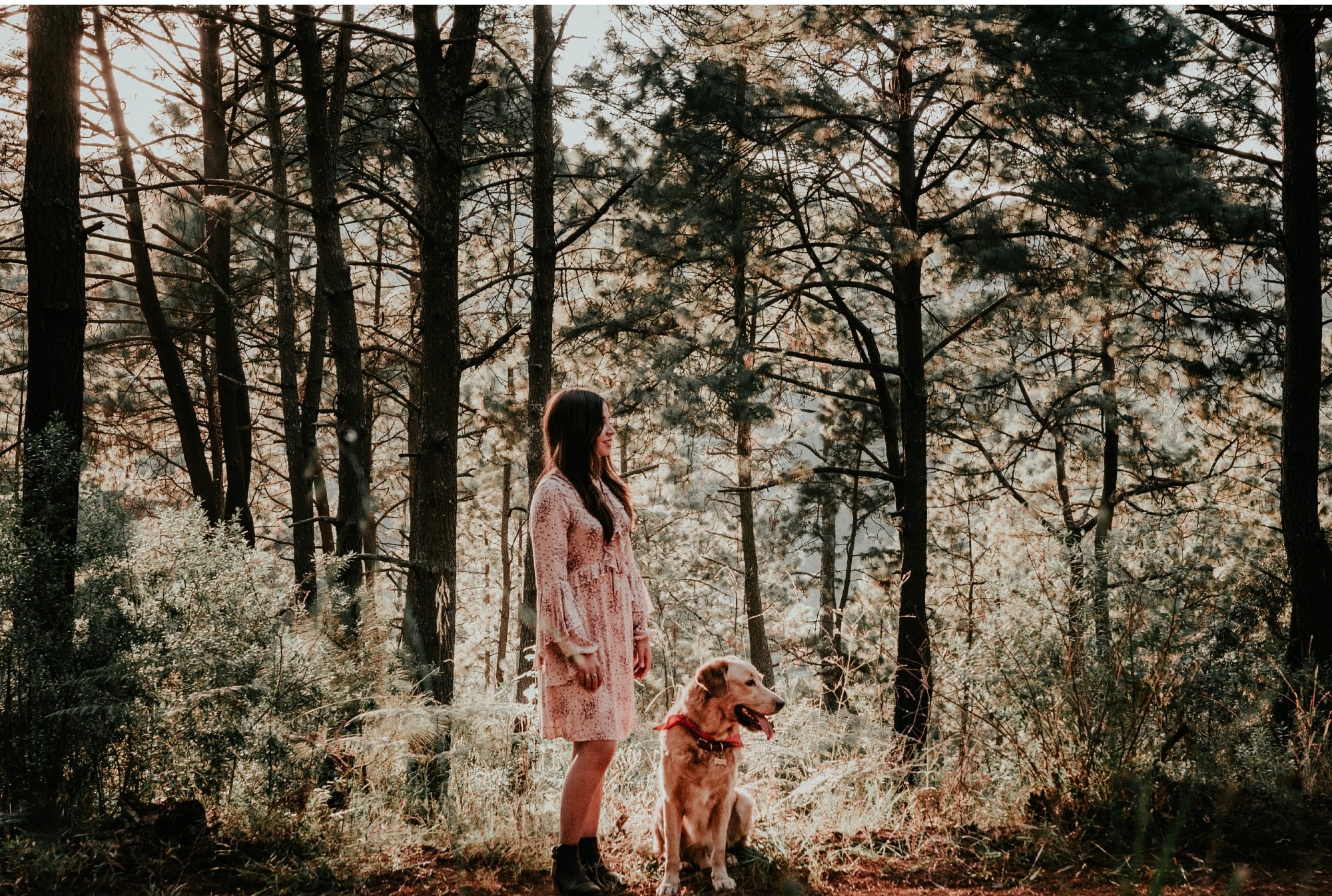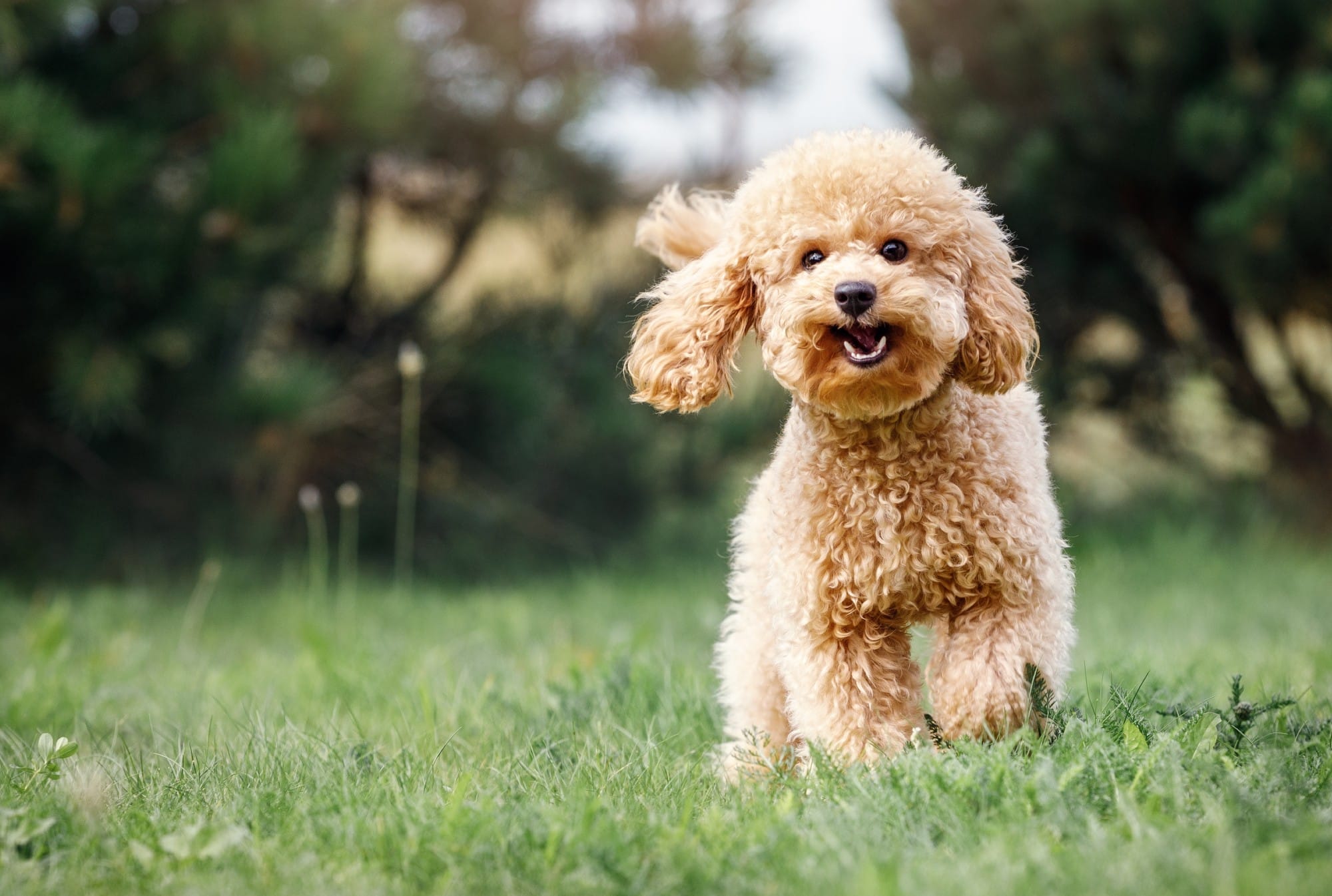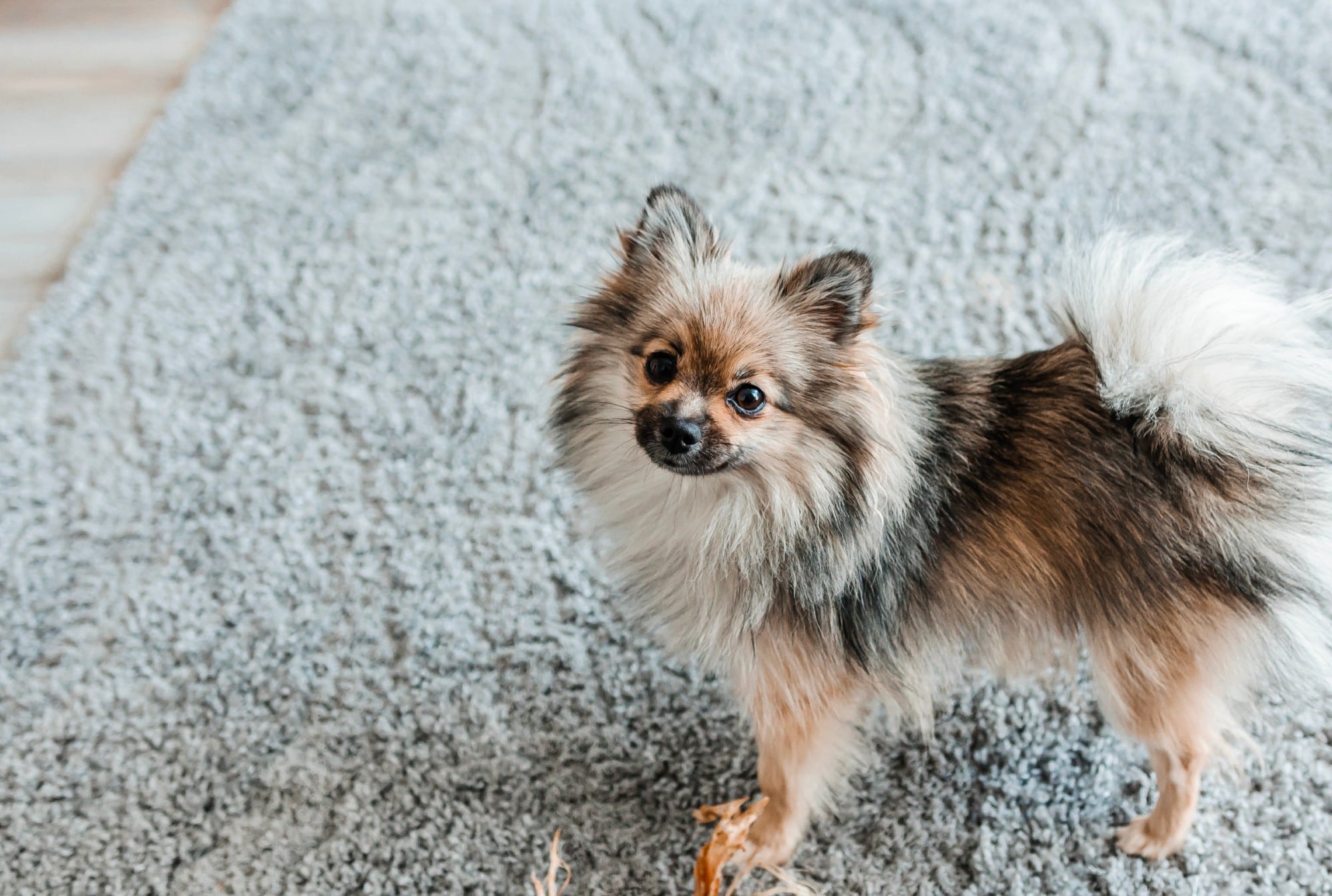From the end of October to the beginning of January, the holiday season is full speed ahead. There’s a lot to keep our dogs excited with all the parties, tables laden with food, presents, decorations and activities. But the holidays also bring some unexpected hazards for our four-legged friends.
An emergency trip to the animal hospital can put a real damper on the holiday spirit. Be prepared by knowing what the dangers are and how to keep your dog safe.
Here are some of the most common dangers and a few uncommon ones to watch out for this holiday season.
Holiday Foods
Unfortunately, there’s a lot of holiday food that is extremely toxic to dogs. The list includes typical goodies like chocolate, grapes, raisins, artificially sweetened candy (and gum) that contains xylitol, alcoholic drinks, coffee, garlic, onions and even cookie dough.
As our dogs like to hang around while we cook hoping for nibbles and food that may fall, be extra careful if you are serving any of these. If you suspect your dog has eaten anything toxic, or you see symptoms like vomiting, diarrhea, pale gums, seizures, lethargy, bloody poop and an inability to urinate, call the poison control number, 1-800-222-1222, to be routed to the center in your area, or visit your local veterinarian.
Related: Here Are 4 Dog Food Cookbooks You Will Actually Use
Dangerous Decorations
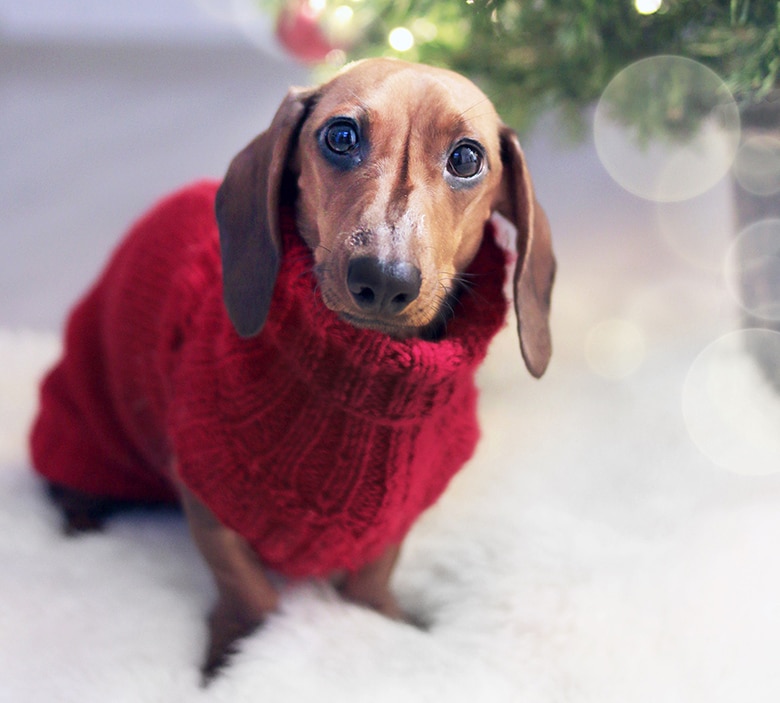
Decorations look like toys to a dog. From tinsel to glass ornaments, if it’s hanging, glimmering or moving, a dog is going to go after it. The danger here varies from ingesting something that will require surgery to dogs cutting their paws on broken glass ornaments.
There are also toys filled with batteries, which are toxic if eaten. If a dog chews and/or swallows a battery, their mouth and throat could be badly burned, and the toxicity can range from moderate to severe. Lithium batteries are particularly dangerous.
Candles may be pretty, but they can start a house fire if your dog knocks them over. And while potpourris make a house smell divine, they can damage your dog’s mouth if eaten, with liquid potpourris being the most dangerous.
Make sure to keep these out of reach, and keep an eye on your dog. Consider putting the tree in a room where the door can be locked, watch when kids open presents with battery-operated toys, and if you have a rambunctious dog, consider ditching the candles.
Electricity
Between holiday lights, tree lights and extra electrical cords, a dog who chews on the wrong wire is in danger of burning their mouths — or worse. A dog playing with electric cords can become entangled, and while trying to get free, they can strangle themselves. Christmas lights tend to hang down low enough for dogs to reach, and they don’t even have to turned on for a dog to be electrocuted.
There’s also a danger outside; when the streets are wet in cities, dogs have been electrocuted walking over icy manhole covers and by stray voltage. Electric shocks can cause a dog to stop breathing, and that can result in brain and lung damage even if you do CPR to get your dog breathing again.
To protect your dog, tie up low-hanging cords and run long wires through PVC cord covers. When walking your dog outside, steer clear of metal covers of any kind on the streets. Also, check out the Red Cross for a primer on pet CPR.
Related: How to Dog-Proof Your Christmas Tree to Ensure Your Pup Has a Safe Holiday Season
Dinner Feasts
Dogs love to pig out (no offense to our porcine friends) just as much — or more — than humans. What dog wouldn’t love a plate of ham or turkey, casserole, mashed potatoes, roasted vegetables and pie? While a tiny taste of some dog-friendly foods may be fine, too much high-fat food can cause pancreatitis (an inflammation of the pancreas) in dogs. The pancreas releases enzymes that aid digestion, which only become active when they reach the small intestine. When the pancreas is inflamed, the enzymes activate as soon as they are released, irritating the pancreas and the surrounding tissues and organs. This condition can be life-threatening.
The major cause of this disease is a high-fat diet, so watch the holiday fixings — and resist those puppy dog eyes! Talk to your guests too; they may think they are being kind, but in reality, they can make your dog very sick with treats of rich, fatty foods.
Holiday Parties
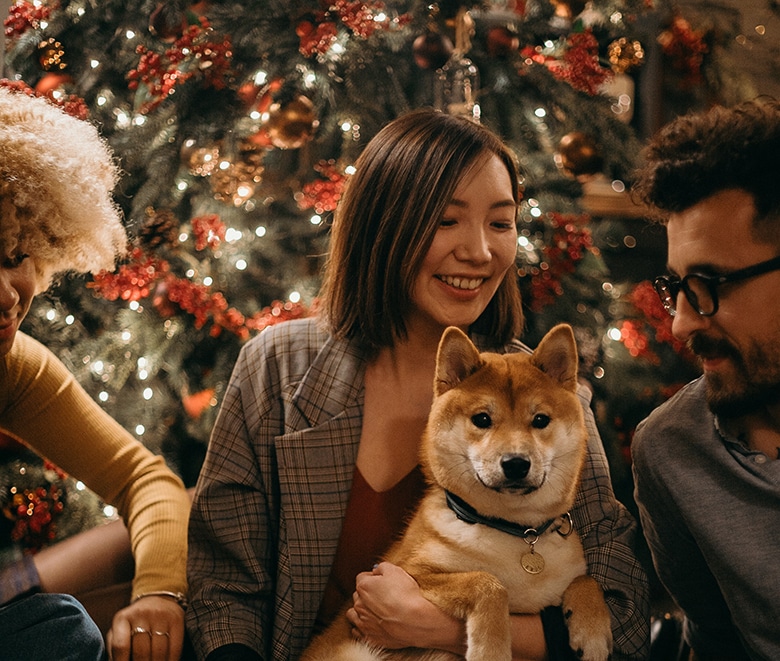
While a house full of good friends, good food and lots of eggnog may be a lot of fun, and your dog may be a big hit, the next day Fido may have something much worse than a hangover. For starters, even the most people-friendly dogs may find a house full of loud, inebriated humans more than they can handle. Between the doorbell ringing, loud music, louder people, and doors opening and closing, a dog can experience the gamut from mild stress to terror. The range of dangers a party poses to dogs is extensive, from alcoholic drinks and broken glass to toxic food and party decorations.
If you are hosting a party, set up a room for your dog to nest. If you can’t lock the door, put up a baby gate. If there’s not a hoard of people, you can try introducing your dog to one person at a time from the other side of a gate. If your dog seems calm, and you want to let him mingle, be sure to check in frequently, and provide a safe, comfy spot somewhere away from your guests where your dog can retreat.
Festive Plants
While typical holiday plants like poinsettias are festive, they can irritate a dog’s mouth and esophagus and make them sick. Holly and mistletoe plants are more toxic than poinsettias, and ingesting them can cause extreme stomach upset and a severe drop in blood pressure. Some lily plants are also extremely toxic to dogs, including the Peace Lily, Lily of the Valley, Calla Lily and Prairie Lily or Rain Lily. Avoid adding anything to the water for a tree as it is usually toxic to dogs. Even plain water may contain sap that can cause gastric upset.
To be safe, keep dogs away from all lily plants, as even the types that aren’t poisonous can cause unpleasant effects in dogs. If you have any of these plants in your home, and your dog has symptoms such as vomiting, diarrhea, excessive drooling or pawing at the mouth, call the ASPCA Animal Poison Control Center at 888-426-4435, the central poison control number at 800-222-1222, or your veterinarian.
The holidays can be a lot of fun, as long as you know how to keep your dog safe. Plan ahead to make safety easier, but have emergency numbers easily accessible just in case.
Related: Amid All the Crazy Holiday Chaos, Here Is How to Keep Your Dog Safe and Happy













